
Deus Ex: Human Revolution was a huge success for developer Eidos Montreal when it was released in 2011, and was hailed by many as one of the best games of the year. Human Revolution was a prequel to the previous games in the series, taking place over 20 years before the original Deus Ex, and all other games and media in the series since have taken place in the same time period.
After a lengthy development cycle, where the team decided that the scope of what they had planned for the game was too large and instead have retooled it into a trilogy under the ?Deus Ex Universe? banner, the long anticipated sequel now titled Deus Ex Mankind Divided was first announced for release in March this year before subsequently being delayed until late August. Helpfully that happened to be the same week as the summer Insomnia show meaning it came out and I was immediately away for nearly a week and couldn?t play it.
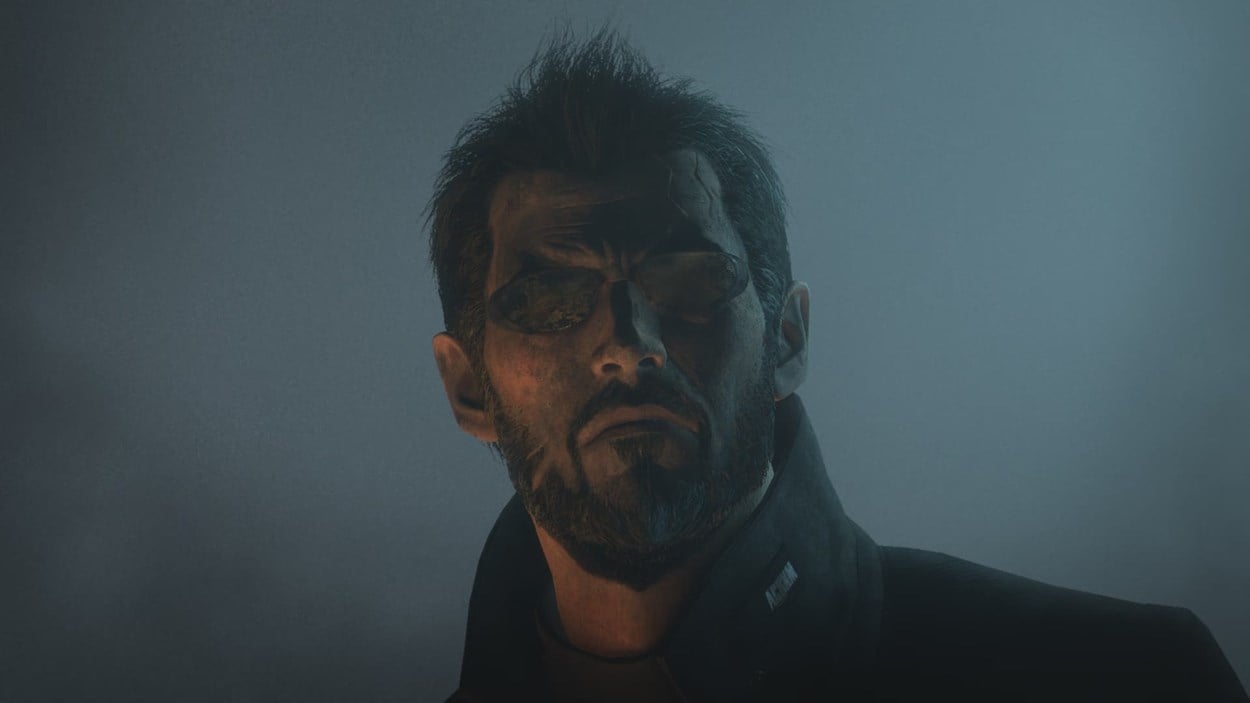
Mankind Divided takes place two years after Human Revolution, with the Augmented finding themselves a persecuted minority in the wake of the ?Aug Incident? at the end of the last game. Adam Jensen, the protagonist of Human Revolution and the first recurring playable character in the series, has relocated to Prague and is working as a member of an Interpol task force intended to prevent terrorist threats.
While working for the taskforce, Jensen is also acting as somewhat of a double agent for the Juggernaut Collective, a group of hackers led by the mysterious Janus, through his local contact Alex Vega who was last seen in the never-finished Deus Ex: The Fall. Jensen?s investigations into terrorist attacks in Prague have him travelling to several other locations, and begins uncovering a secret plot orchestrated by shadowy individuals. There?s a fair amount of intrigue and mysteries to uncover in typical Deus Ex fashion.
| 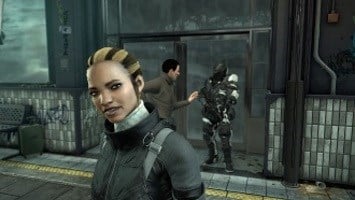
| 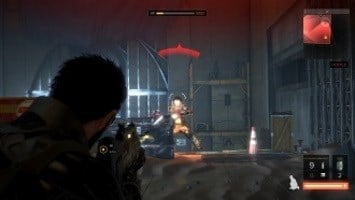
|
As is common with Deus Ex games, it opens effectively giving you the choice of deciding if you?re going to go stealthy or lethal and both are viable ways to play the game. I generally choose silent and non lethal for my first playthrough and didn?t change that habit here but did use a lot of the other guns on my second run. The stun gun returns with a bit more range than before to make it more widely useful, and the addition of different ammo types such as EMP mean that even on a stealth run it can be helpful to keep a regular weapon to disable cameras and turrets.
Structurally, it?s a very similar game to Human Revolution. Jensens augmentations work in largely the same way, though the energy cells have been removed for a somewhat more flexible gauge, cover works basically the same and the hacking minigame returns with a few upgrades. If you?ve played Human Revolution you?ll be on very familiar territory. In typical video game manner Jensen starts off with most of the augmentations that were available in the last game before having a story reason to lose them, you do get them back quite quickly though along with enough Praxis points to reactivate a good selection as well as a handful of new augmentations such as the Titan Shield which covers Jensen in armour and some new offensive weaponry built into his arms. The ones I found most useful were the Icarus Dash, which allows you to dart across gaps, and remote hacking for accessing a number of electronic devices from a distance.
| 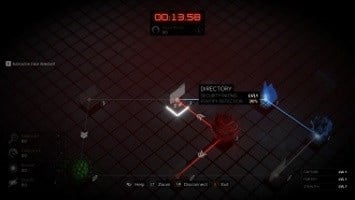
| 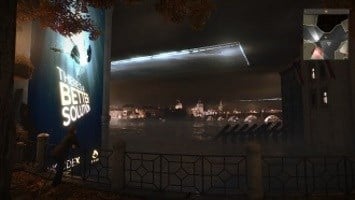
|
As with Human Revolution, the art style and visuals of the game are outstanding. The black and gold colour scheme of Human Revolution has been massively toned down, though there are still a few areas where it is more dominant, but there?s a great sense of visual consistency between the two games. While technology has moved on a little in the two year gap, it looks and feels like the same world with lots of similar weapon designs, vehicles and so on. Happily, air duct construction in the world of Deus Ex now seems to be handled by several different companies so there?s a wider variety of vent designs this time around and some even have colour!
Dialogue moments between characters are also somewhat improved with people Jensen is talking to being a bit less stiff and robotic than they were in Human Revolution but still somehow fail to be properly lifelike. There?s also a drastic difference in the quality of the character models between major characters and random bypassers on the street which becomes very noticeable in conversations.
On my A10 APU and GTX 960 graphics card with 16GB I was getting around 45 FPS on average, a little lower than I tend to like to go but even turning most options down I couldn?t get any significant improvement out of it so figured it was best to keep it looking as shiny as possible. I did encounter a few points where the game would stutter a little and even lock up completely for a second or so while travelling around the Prague hub area. I wouldn?t say it happened enough to be a major issue but certainly something I remembered. I wouldn?t recommend trying to play in 1080p on lesser hardware.
Aside from the occasional stutter in Prague, I didn?t find any other major issues while playing. I had one crash that look the game out completely but that was the only instance. I did have one time that a notification got stuck on my screen, but going through a loading screen fixed that easily enough. There were a few times that characters? lip sync would just break completely and their mouth would just stay open and on one visit to the taskforce?s psychiatrist I found her sitting in the middle of the air, but neither of these affected gameplay at all.
I did notice very long initial load times, my Steam folder is on an SSHD so I expected these to speed up over time but never seemed to. Load times are increased enormously off an SSD, even more so that I would have expected, dropping the first load from about 2 minutes to 15 seconds or so meaning if you can install it to an SSD it?s definitely worth doing.
While there aren?t many returning characters in this instalment, we do have Elias Toufexis returning as Adam Jensen. I know some aren?t a fan of his rather deadpan reactions to much of what goes on around him but I?ve always rather liked the character and Toufexis? work voicing him. The rest of the voice cast are generally solid, though there are a few dodgy sounding accents. Jensen?s boss Jim Miller played by veteran actor Vernon Wells, who I know best as the villainous Bennett from Commando, and British actor Peter Serafinowicz as his colleague Mac are the other two standouts and both gave enjoyable performances. There were a few moments where you?d have AI characters having conversations or shouting at each other that would repeat the lines quite regularly though which was less than ideal.
| 
| 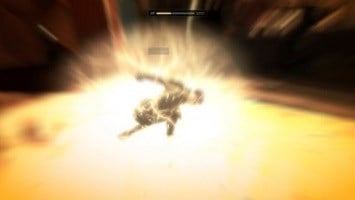
|
The sound design generally is quite good too. The atmospheric sounds of Prague are much less repetitive and naturalistic than those of Detroit or Hengsha in Human Revolution, and all of the weapons and equipment Jensen has have decent sound effects.
Composer Michael McCann returns, joined by Sascha Dikiciyan who I mostly know from his work on Mass Effect 3. McCann provides some big, sweeping themes much like his work on Human Revolution while Dikiciyan?s work, and in particular the title screen, sounds rather reminiscent of Mass Effect. It?s a good mixture and solid music all round. Also of note is a track by Misha Mansoor of the band Periphery, delivering a fantastic heavy rock rendition of the main theme from Human Revolution.
| 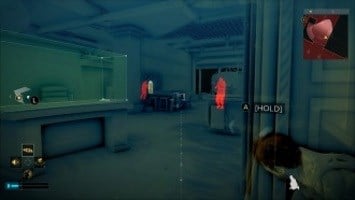
| 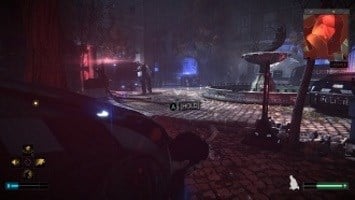
|
Like I usually do, I primarily played Mankind Divided with a pad. On starting a new game, it gives the choice of a couple of control schemes. Having just played through Human Revolution immediately before I went for that control scheme again which worked perfectly for me aside from the lack of a cover toggle option (which the default scheme does have) but I got used to it. Unlike most games, I also spent some time playing with a keyboard and mouse on my test bench at work, and found that a lot less pleasant. This feel like a game that was developed with pad controls as the primary input, and they keyboard layout feels almost like an afterthought. Vital functions like the weapon wheel are a little too far from the main WASD keys, and the menus feel very clunky with mouse input.
I?ve seen a lot of talk online suggesting that the game is a bit on the short side. While it?s true that you can get through the main story in about 5 hours if you ignore all of the side quests and exploration, that?s also true of Human Revolution and many other games. My first playthrough of the story clocked in at around 40 hours, and even then I still missed a few areas and collectables. As I?ve mentioned in past reviews I do have a tendency to try and ?do everything? in a game and that ended up putting my playtime at double that, which is partly the reason why some games take me a while to finish and review, but I think that?s a pretty respectable amount of game time for your money. I would say though that it does feel a bit more limited in scope and certainly there?s less globe-trotting compared to Human Revolution for example which is most likely the result of the original outline of the game becoming a trilogy and having to pace the plot accordingly.
| 
| 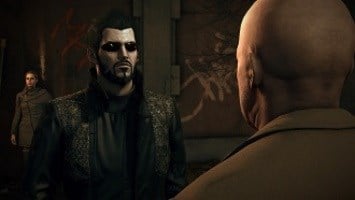
|
Another criticism I?ve seen is the addition of microtransactions, both in the main game and the Breach online mode. While it?s true that there is the option to pay for Praxis kits to level up quickly this is entirely optional and can be avoided altogether ? I unlocked all of Jensen?s augmentations before half way through my New Game + run without spending a penny on them but I really don?t find myself offended by their existence. If someone wants to spend a few pounds to do their first playthrough with all of the augments I can?t see how that hurts anyone.
Aside from the main story, there are a few additional sections to the game. Firstly, the most notable one is the aforementioned Breach mode. Casting you as a random ?Ripper?, the high tech hackers of the future, it?s basically a first person version of the hacking minigame. Set in smaller levels, you typically have to either capture a set number of data nodes or eliminate guard units and escape before the automated security countermeasures catch you. Gameplay wise, it?s identical to the story but with a few even more advanced and physics breaking augmentations available such as a triple jump. The levels all have a very minimalist art style, and simplified colour scheme of whites, purples and oranges.
I did find Breach rather enjoyable as a diversion and while it adds very little that would be considered vital, the side ?Darknet? missions that you unlock as you progress give some background information on the various fictional corporations of the world and the shady things they tend to get up to that I found quite interesting. With only a few exceptions, I didn?t find it terribly difficult though and that might be due to having found all of the Breach unlockables in the story before I started that gave me an incredibly powerful pistol from the start that I simply used for every level.
| 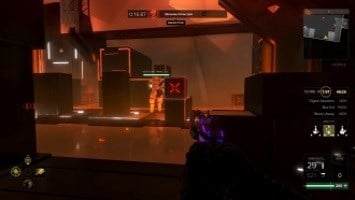
| 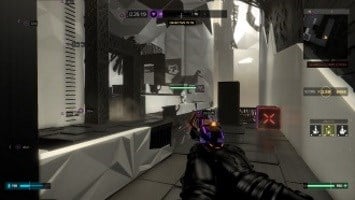
|
Finally, under the Jensen?s Stories banner is some additional story content. The first, Desperate Measures, comes with ?preordered and day one? purchases of the game and isn?t listed separately at present. This is a largely missable mission anyway, taking place at some point during Jensen?s night time visit to Prague and is very clearly a side mission that was cut from the game to become DLC. It would have been nice if there had been an option to play this in its original place in the story, as instead you have to set up and level Jensen from scratch again which isn?t exactly ideal.
The second isn?t included as part of the main game and is the first downloadable story chapter available for purchase, but it came out while I was playing through the game so thought it worth mentioning here. This chapter, titled System Rift, features the return of Pritchard from Human Revolution which I was very happy about. The banter filled conversations between Jensen and Pritchard were one of my favourite parts of Human Revolution and found them sorely missing while going through the main story, so it was great to have him back if only for a little while. Elias Toufexis and Andreas Apergis, Pritchard?s voice actor, have a wonderful chemistry together and any scene with them both has by far the best voice acting in the game.
| 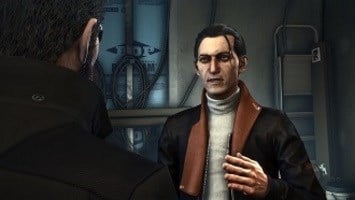
| 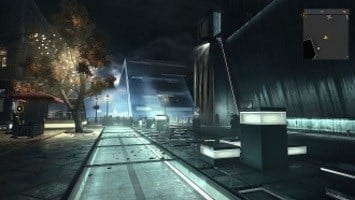
|
Taking place in a new part of Prague, Pritchard recruits Jensen into helping him break into one of the Palisade Blades, the striking structures seen hovering over Prague?s river, and features a few new environments and characters. It?s not terribly long, clocking in at about 3 hours or so for a fairly exhaustive play, but certainly enjoyable but again suffers from the same problem as Desperate Measures as you have to level Jensen up again and can?t access the content from within the main story.
I very much enjoyed my time with Mankind Divided. While I wouldn?t have minded the story going a little further I understand that the development team things planned out for future games and have faith that it will all sit together well once it?s finished and even found myself enjoying the completely unnecessary Breach mode.
If you didn?t enjoy Human Revolution then there?s nothing here that would turn you around really, but for fans of the previous game this is effectively more of the same and to me that?s a good thing.
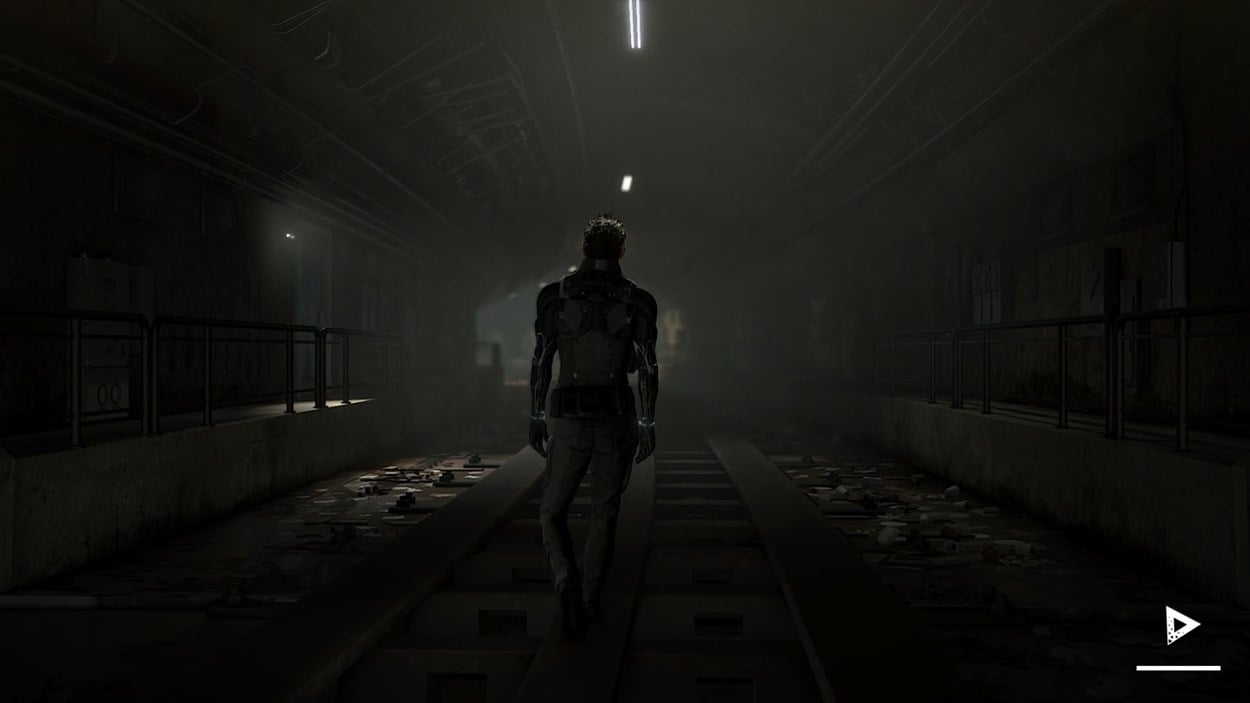
Deus Ex: Mankind Divided is out now on PC, PlayStation 4 and Xbox one.
The System Rift DLC is available for purchase either by itself or as part of the season pass.





